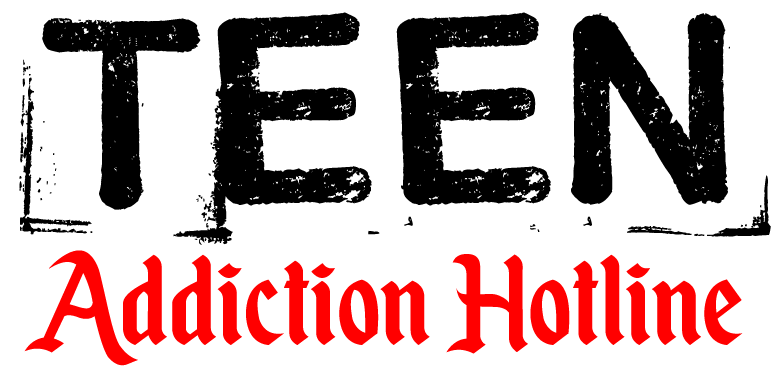New Hampshire Teen Addiction Hotline
New Hampshire Teen Substance Abuse Helpline
New Hampshire has struggled with teenage substance abuse. Common substances abused by teenagers include alcohol, marijuana, prescription drugs (such as opioids), methamphetamine, and other illicit drugs.
New Hampshire has been particularly affected by the opioid crisis, which has had a devastating impact on individuals of all ages, including teenagers. Opioid abuse, including prescription painkillers and illicit drugs like heroin, has been a significant concern in the state.
New Hampshire teenagers may be at risk of substance abuse due to various factors, including peer pressure, family history of substance abuse, trauma, stress, mental health issues, academic struggles, and easy access to drugs or alcohol.
New Hampshire teenage substance abuse can lead to a range of negative consequences, including impaired judgment, academic decline, behavioral problems, legal issues, mental health disorders, and an increased risk of addiction later in life.
New Hampshire has implemented prevention and intervention strategies to address teenage substance abuse. These efforts often involve school-based prevention programs, community awareness campaigns, and support services for teenagers and their families.
There are treatment resources available in New Hampshire to help teenagers struggling with substance abuse. These may include counseling, therapy, support groups, outpatient programs, and residential treatment centers.
New Hampshire provides helplines and resources for individuals seeking help with substance abuse issues. The New Hampshire Department of Health and Human Services (DHHS) and organizations like the Substance Abuse and Mental Health Services Administration (SAMHSA) offer information and support for those in need. If you need immediate medical attention, call 911 Now.
Substance Abuse Statistics New Hampshire Teenagers
Teenagers in New Hampshire are 27.56% more likely to have used drugs in the last month than the average American teen as reported by the National Center for Drug Abuse Statistics (NCDAS)
- 10,000 or 10.63% of 12- to 17-year-olds report using drugs in the last month.
- Among them, 80.00% report using marijuana in the last month.
- 15.94% of all 12- to 17-year-olds report using marijuana in the last year.
- 1.06% report using cocaine in the last year.
- Up to 0.53% report using methamphetamines (data is limited).
- Up to 0.53% used heroin.
- 2.13% report misusing pain relievers.
- 10.63% of all 12- to 17-year-olds used alcohol in the last month.
- Teens in New Hampshire are 16.13% more likely to use alcohol than the average American in their age group.
- 64,000 adults aged 18- to 25-years-old used drugs in the last month.
- 18- to 25-year-olds in New Hampshire are 24.35% more likely to use drugs than the average American in the same age group.
- 3.19% of all New Hampshire 12- to 17-year-old teenagers met the criteria for IDUD in the last year.
- 2.13% of all 12- to 17-year-olds met the criteria for AUD in the last year.
New Hampshire National Teen Drug and Alcohol Abuse Hotline
The New Hampshire Teenager Addiction Hotline is a nationwide resource for teens struggling with substance abuse. Call (888) 351-0084 to speak with a professional substance abuse specialist. The New Hampshire Teen Addiction Hotline trained counselors are available 24/7, ready to provide a safe and non-judgmental space for you to talk about your concerns.
24/7 Free Confidential Hotline
Remember, your call is confidential, and you can share as much or as little as you feel comfortable. We respect your privacy and are here to support you in a way that best suits your needs.
New Hampshire Teenager Addiction Resources
State of New Hampshire Recovery Support Services
State of New Hampshire Recovery Support Services, The Teenage Recovery Support page provides information on recovery support services for individuals and families across the state. Through the Recovery Support Strategic Initiative, the Substance Abuse and Mental Health Services Administration (SAMHSA) delineated 4 major dimensions that support a life in recovery and a set of guiding principles for recovery:
Addiction Recovery Coalition of New Hampshire
Addiction Recovery Coalition of New Hampshire is a Community Recovery Center (ARCNH CRC) in Milford, NH that treats Substance Use Disorder (SUD) by providing a central location for access to local support systems. Our personal experiences with SUD drive our passion and urgency in addressing this epidemic using a peer-to-peer based approach. With so many pathways to recovery available, we guide individuals in finding the pathway that feels most aligned with their values and needs.
New Hampshire Alcohol & Drug Abuse Counselors Association
New Hampshire Alcohol & Drug Abuse Counselors Association NHADACA is a non-profit organization dedicated to advancing addiction professions in NH. Through workforce development activities, education and advocacy, we strive to enhance the knowledge and skills of addiction professionals, advance licensure, increase awareness of addiction issues in NH, and promote programs and policies that ensure access to high quality services for NH citizens struggling with addiction.
Amethyst Foundation, Inc. New Hampshire
Amethyst Foundation, Inc. New Hampshire is a private, non-profit organization that has offered professional substance abuse education, intervention and evaluation to individuals, courts, probation officers and other organizations since 1981. The administrative offices and residential facility are located in Epping, New Hampshire, which is readily accessible to residents of New Hampshire and other New England states.
New Hampshire Charitable Foundation
The New Hampshire Charitable Foundation is New Hampshire’s statewide community foundation, founded in 1962 by and for the people of New Hampshire. We are the place where generosity meets the dedication and ingenuity of nonprofits and the potential of New Hampshire students. For six decades, thousands of people have entrusted their charitable resources to the Foundation, creating a perpetual source of philanthropic capital and making it possible for the Foundation to award more than $60 million in grants and scholarships every year.
